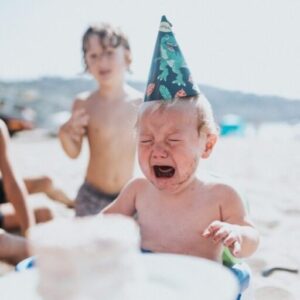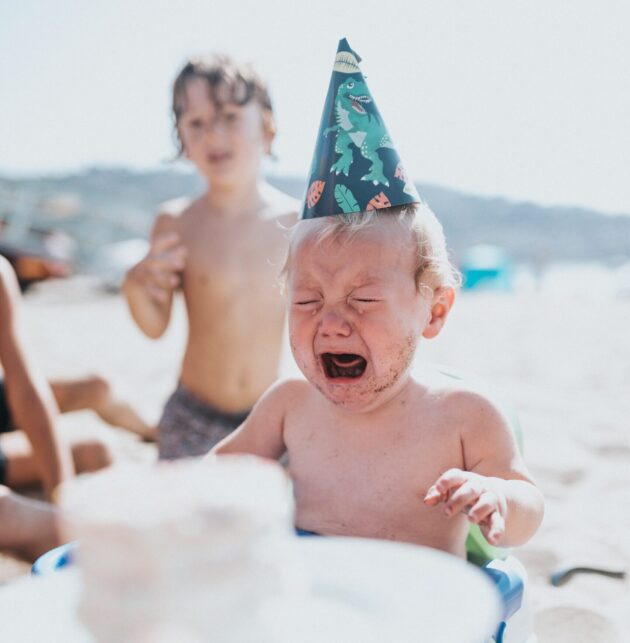Can Fireworks Damage Children’s Hearing? Fireworks displays are dazzling spectacles that bring joy to people of all ages. The bright lights and colourful displays are often the highlight of celebrations like New Year’s Eve, Bonfire Night, and countless other festive occasions. However, amid the excitement of the night sky lighting up with loud fireworks, there’s an often-overlooked concern: the potential for hearing damage, especially in young children. The sound of fireworks can be thrilling, but it can also pose a real risk to children’s ears if the right precautions aren’t taken.
The Science of Fireworks and Sound
When fireworks explode, they produce a resulting explosion that generates loud noises, often exceeding 150 decibels (dB) at close range. To put that into perspective, a shotgun blast also reaches around 150 dB. These loud bangs are far above the maximum safe decibel level of 85 dB, the threshold at which prolonged exposure can cause noise-induced hearing loss. Even a single exposure to loud explosions at close distance can result in permanent hearing loss, especially for delicate ears.
Children’s ears are particularly vulnerable because their inner ear structures, including the cochlea, are still developing. A small baby or infant’s ear canal amplifies sound differently, making them even more susceptible to the effects of high noise levels. For young children and babies, even temporary hearing loss caused by exposure to loud fireworks can have long-term consequences if not addressed promptly.
How Fireworks Can Harm Little Ears
Fireworks shows and home displays alike can pose risks to children’s hearing. The loud sounds created by fireworks generate intense sound pressure that can overwhelm the delicate structures of the inner ear. For small children, who often have more sensitive ears than adults, this risk of damage is significantly greater.
When young kids or babies are exposed to loud fireworks at close range, they may experience symptoms such as ringing in the ears (tinnitus), discomfort, or difficulty hearing. In some cases, exposure to loud noises can result in permanent damage to a child’s hearing, particularly if the exposure is repeated or prolonged. It’s important to note that a baby’s ears are even more delicate, making it crucial to take extra care during events involving loud sounds.
Protecting Your Child’s Hearing During Fireworks
The good news is that hearing damage from fireworks can be prevented with a little preparation and the right precautions. Here are some tips to ensure your whole family can enjoy the fireworks display safely:
Maintain a Safe Distance
A good rule of thumb is to keep a safe distance from the fireworks show or fireworks night display. The farther away you are from the noise of the fireworks, the less intense the sound pressure will be. Public displays and professional fireworks are usually set up with designated viewing areas that help spectators maintain a safe range.
Use Hearing Protection
Ear protection is essential for young children and babies during fireworks displays. Consider using ear defenders, ear plugs, or ear muffs specifically designed for sensitive ears. These devices can significantly reduce the noise levels and prevent long-term damage to children’s ears.
Plan for the Little Ones
If this is your child’s first time attending a fireworks show, prepare them for the experience. Loud bangs and bright lights can be overwhelming for small children, so having a backup plan, like stepping away to a quieter area, is a good idea. For infants, consider avoiding the event altogether or opting for quieter, smaller-scale celebrations.
Avoid Close Proximity
Avoid standing at close range to the noise of the fireworks. Whether you’re attending a public display or setting off your own fireworks, ensure that you and your family are well outside the danger zone. Home displays often pose a greater risk because people may underestimate the power and noise levels of the fireworks they’re using.
Choose Public Displays Over Home Fireworks
Professional fireworks are typically set up with safety guidelines and precautions in mind, including noise control. Attending these displays rather than creating your own fireworks at home reduces the likelihood of exposing children to harmful noise levels.
What to Do If You Suspect Hearing Damage
If your child experiences symptoms of hearing damage after a fireworks show, such as muffled hearing, discomfort, or persistent ringing in their ears, seek medical attention promptly. Temporary hearing loss can often resolve with rest, but it’s important to rule out permanent hearing loss or other complications caused by the noise of the fireworks.
Enjoying Fireworks Safely
Fireworks displays are magical moments that can be enjoyed by the whole family with the right precautions. By prioritising ear protection and maintaining a safe distance, you can protect your child’s hearing while still enjoying the bright lights and colourful displays in the night sky. Remember that small children and babies have delicate ears that need extra care, so investing in ear defenders or ear muffs is a good idea for any fireworks-related outing.
While the sound of fireworks is an integral part of the experience, it’s crucial to keep noise levels in mind to prevent long-term damage. With a little preparation and awareness, you can ensure that the magic of fireworks night remains a joy for everyone—without compromising the health of your little ones’ hearing.
Further Links and Resources
https://tinnitus.org.uk/news-list/celebrating-with-fireworks-dont-forget-to-protect-your-ears/
More Posts from Enjoy Every Minute You Might Find Useful
https://enjoyeveryminute.co.uk/2024/10/30/what-age-should-kids-start-going-to-the-dentist/
https://enjoyeveryminute.co.uk/2024/09/30/guide-to-baby-and-toddler-winter-coats-2/


